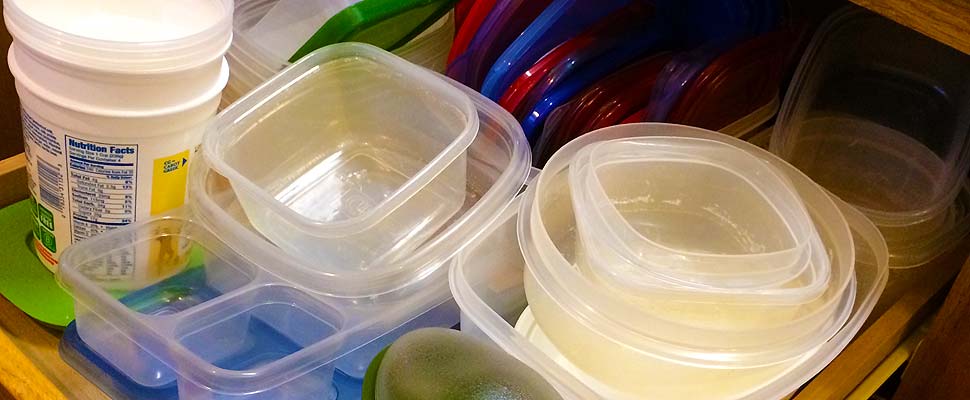Do you know what is in your shampoo? What about your toothpaste or deodorant? Ever thought twice about the safety of a plastic water bottle? What about your mattress?
NC State professor Heather Patisaul is discovering through her research that humans are profoundly influenced by the environments in which they live and the chemicals they encounter regularly. Research shows this: you’re likely being exposed to several potentially harmful chemicals through the air you breathe, the personal care products you use, how you clean your bathroom or kitchen, and even the containers from which you eat or drink.
Here’s the good news: your product choices can make a difference. These five steps can drastically reduce your exposure to everyday chemicals and ensure a more sustainable you.
Pitch Plastic
Reducing much of your exposure to endocrine disruptors such as bisphenol A, or BPA, can be solved by reducing your use of one major thing: plastic. “Get plastic out of your lunch box. Anytime you can, choose glass or metal. It’s more environmentally friendly, sustainable and it’s better for your health,” Patisaul said.
That includes avoiding bottled water, reusable plastic water bottles, plastic cups and plastic food containers. In particular, Patisaul said avoid microwaving food in plastic containers or subjecting plastic food containers to heat (such as the sanitation cycle in your dishwasher), which accelerates the degradation of plastic. “Chemicals come out of the product over time, leaching chemicals into what you eat or drink,” she said.
And unfortunately BPA-free plastics might be just as hazardous.
Rethink Foam
While you’re pitching plastic, avoid polystyrene cups and to-go food containers. Like plastic, polystyrene leaches chemicals – particularly when exposed to heat such as a cup of coffee or hot tea.
Take a Breath of Fresh Air
What’s one of the most sure-fire ways to annoy your roommate? Buy products with fragrance. Not everyone loves your favorite cucumber and citrus shampoo or tropical sunrise candle, and Patisaul cautions that you might not love it either if you knew how it’s most likely made. “If it smells, it’s made from chemicals and some are known carcinogens,” she said.
Scrub Safely
EWG Skin Deep app and database offers guidance on chemicals used in thousands of personal care products such as shampoos, soaps and cosmetics. Research the impact of the products you currently use and any you consider buying.
Clean Up Your Cleaning Products
Like personal care products, our skin absorbs many of the chemicals in household cleaning products. EWG’s Guide to Health Cleaning shows consumers the impact of chemicals in common household cleaning products so that you’re able to make an informed choice.
Read more about Patisaul’s quest for a toxic-free future.
